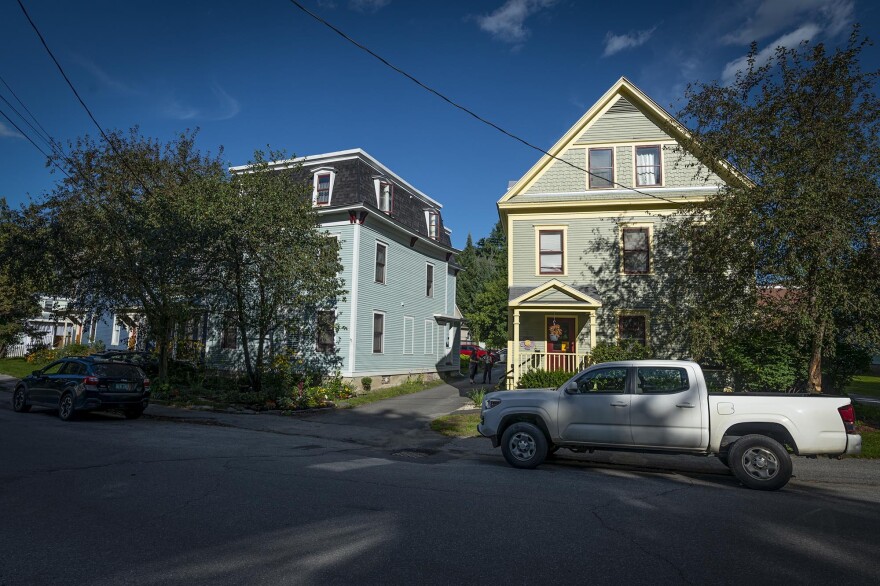This story, by Report for America corps member Carly Berlin, was produced through a partnership between VTDigger and Vermont Public.
After Barre City suffered extreme damage from the July 2023 floods, constituents began to approach Rep. Jonathan Williams, a Democrat from Barre City, saying they had no idea they lived in a home at risk of flooding.
“That happened day after day, day after day,” Williams said in an interview.
Vermont is among a minority of states lacking a mandatory flood risk disclosure law for real estate transactions, leaving prospective homebuyers and renters with limited information as they decide where to live. But a number of state lawmakers are pushing this session to change that.
Following a year of historic flooding, legislators have introduced several bills that would require home sellers, landlords and manufactured home park owners to communicate flood risk and flood history to prospective homebuyers and renters.
Williams and other Washington County legislators included flood disclosure measures in their flood recovery omnibus bill, H.723. Home sellers would need to convey that their property is located in a federally- or locally-mapped flood hazard area, whether the property has flooded before, and what the seller’s flood insurance rate is. The bill would give buyers a path for recourse if the seller fails to disclose the required information.
Landlords would also need to tell prospective tenants the same information, and if they don’t, a renter could terminate their lease.
After encountering manufactured home park residents who lost their homes during the July floods – and didn’t know the park they lived in had a history of flooding – Rep. Anne Donahue, a Republican from Northfield, decided to put forth H.556, a flood disclosure bill specific to manufactured home parks.
“It just seemed to me that as a bare bones, bottom line – amongst all the other things we needed to do in response to flooding – is ensure that areas that had a history of flooding, in fact, people would clearly know that as part of the decision to rent a lot for a mobile home,” Donahue said.
Lawmakers said they think there is momentum for enshrining flood disclosure requirements in state statute. But Rep. Thomas Stevens, a Democrat from Waterbury – who has introduced another flood disclosure bill focused on homebuyers, H.639 – said he anticipates pushback might come from homeowners concerned that disclosure could dampen their property values.
“Is that fair to the seller, who might fear that by disclosing it, by mandate, that they’re actually lessening the worth of their house?” said Stevens, who chairs the House Committee on General & Housing.
Realtors, already required through their code of ethics to disclose all “material facts” about hazards within their knowledge to a prospective homebuyer, might also oppose it, Stevens said.
But Peter Tucker, a lobbyist for the Vermont Association of Realtors, said he supports flood disclosure measures, even though he views them as somewhat redundant for buyers using realtors. While realtors are involved in the majority of real estate transactions, he said, for those not using agents, “it’d be nice to make sure those folks have that responsibility.”
The Vermont Landlord Association did not respond to a request for comment.
In a 2022 analysis of state flood disclosure laws, the Federal Emergency Management Agency rated Vermont on the weak end of the spectrum: The state didn’t have any of the 10 flood risk disclosure measures surveyed. FEMA found that states with stronger disclosure requirements — like Louisiana, Texas and South Carolina — often have higher rates of residents with flood insurance policies.
Few Vermonters have flood insurance coverage, leaving many to rely on federal disaster aid to recoup their losses after the July floods — which rarely pays out as much money.
Rep. Conor Casey, a Democrat from Montpelier and a co-sponsor of the flood recovery omnibus bill, said flood disclosure requirements are a necessary part of planning for a future with more flooding.
“The worst thing that could happen after a tragedy like this, you know, is not learning your lessons,” he said. “This is not a one-time event. This is not a 100-year flood. This is going to be a part of our lives going forward here, so we have to have these protections in place.”
Have questions, comments or tips? Send us a message.





